Senior Design Day 2025
Senior Design is the capstone of Penn’s practice-integrated mechanical engineering curriculum. The two-semester senior design sequence challenges students to bring theory, skills, general knowledge, and inventive energy to bear on substantial engineering problems. There is no “typical” project and the variety is always surprising: some projects lead to marketable products; some explore a theoretical principle; some are just for fun. But taken together, they reflect the breadth and diversity of mechanical engineering. Senior Design Day is split between presentations in the morning and a poster session in the afternoon.
Teams
Argus | Beathoven | CPRo | Flash | Frost Bite | Helium Solutions | Hyd5a CNC | IdeaSmith | Pressure Sole | Robopicker | Velox
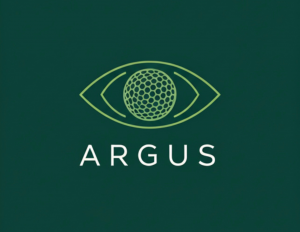 Argus
Argus
Precision Rolling for Perfect Greens, Every Time
Maintaining high-quality and high-speed golf course greens is critical to the game of golf but demands significant labor and resources. Argus addresses this problem by developing an autonomous robot with green rolling and driving capabilities, optimizing labor efficiency and green quality. Argus is designed to autonomously navigate and operate on and between golf course greens, featuring obstacle avoidance, precise navigation, and optimal rolling pressure to meet varying greens conditions. Powered by an electric drivetrain, Argus is a sustainable solution with low noise and emissions.
Team Argus is composed of Fiona McLaughlin, Oren Minsk, Samuel Stedman, Cody Hopkins, Zachary Rudder, and John D’Ambrosio and is advised by Shalini and Rajeev Misra Presidential Assistant Professor Nadia Figueroa.
 Beathoven
Beathoven
A Smart Aid for Hard-of-Hearing Musicians
Beathoven aims to support musicians who are undergoing or have experienced mild or moderate hearing loss. This product will best serve musicians in a rehearsal setting, providing a stream of live feedback on pitchiness, volume, and timbre. With a simple LCD display, all the information is conveyed in a smooth, concise manner that can be referenced while actively playing. Musicians are 4x as likely to develop noise-induced hearing loss as the general population, and the Beathoven is an invulnerable ear in the room who can listen to and convey subtleties that might otherwise go unheard.
Team Beathoven is composed of Tajriyan Chowdhury, Saúl Escorza, Jazmyn James, and Katherine Li, and is advised by Senior Lecturer Bruce Kothmann.
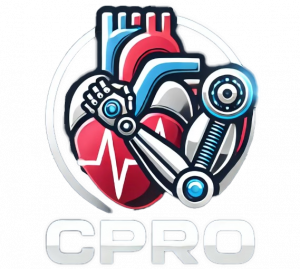
CPRo
The Cardio Pump Robot
Out-of-hospital cardiac arrests affect over 356,000 individuals annually in the US with a 90% fatality rate. Prompt chest compressions can increase survival odds by 2-3 times, yet the average ambulance response time of 8 minutes leaves bystanders responsible for sustaining CPR. Unfortunately, most bystanders are untrained, and even trained individuals experience fatigue within a minute of compressions, reducing effectiveness and consistency during this critical window.
CPRo, the Cardio Pump Robot, provides a lifesaving, quickly-deployable solution designed for non-CPR-certified civilians in public spaces. CPRo is a lightweight, portable device that delivers consistent chest compressions at the recommended frequency (100-120 bpm), depth (2-2.4 inches), and force (100-125 lbs). Equipped with intuitive printed instructions, visual indicators, and auditory prompts, CPRo ensures ease of use even for untrained individuals. The device aims to sustain compressions for 10+ minutes, bridging the gap until emergency responders arrive.
Team CPRo is composed of Tal Goodman, Josué León, Lucy Lin, Aaron Ray, and John Szijjarto and is advised by Associate Professor Jordan Raney.

Flash
Developing film is costly, time intensive, and hard to master. If film is not developed correctly, the film is ruined forever and the precious memories captured in the photographs are lost. Film development involves technical processes that are hard to learn and require expensive equipment, costing users anywhere from $500 to $3,000. Current solutions attempt to simplify certain steps of the film development process but do not automate the entire process like Flash does. Flash works by taking in a user’s film canister and automatically reeling the film; a novel process that does not exist in the market. Then, Flash dunks the film reel in the properly heated chemical baths, returning the developed film to the user in less than 30 minutes.
Team Flash is composed of Camila Pazos, Clarice Pranyoto, Ainsley Rexford, and Maya Shroff, and advised by Practice Associate Professor Dustyn Roberts.

Frost Bite
A Simpler Home Ice Cream Maker
Frost Bite is bringing a new ice cream maker to the home chef that produces a variety of high quality frozen desserts with a simpler user experience. Frost Bite’s Yeti machine has integrated refrigeration technology that freezes ice cream ingredients throughout the one hour production cycle, eliminating the need to pre-freeze components. The integrated refrigeration system also allows for refined temperature control, leading to a high quality, store-bought dessert texture. With built-in ice cream, sorbet, and gelato modes accessible on an easy-to-use touchscreen, along with a mix-in port to add favorites like cookie dough and peanut butter cups during churning, the flavor possibilities are endless with the Yeti. Last but not least, all of Frost Bite’s components are dishwasher-safe, liberating the home chef from tediously handwashing ice cream making equipment.
Team Frost Bite is composed of Henry Seiden, Ethan Sundel, Davesh Valagolam, Jordan Yang, and Jared Astrof and is advised by Associate Professor Igor Bargatin.
 Helium Solutions
Helium Solutions
A Helium-Filled Bubble Machine Designed for Field Experiments
Current helium-filled soap bubble (HFSB) machines used for particle tracking velocimetry (PTV) are optimized for lab use, leaving a gap in the market for field-capable HFSB generators. Current lab HFSB machines are not designed for transportation and quick setup in the field, nor are the bubbles large enough for large-scale tests. The machine fills this gap by integrating all subcomponents into a portable system. Further, the bubbles generated are enlarged, improving tracking and scaling up the experimental volume on the order of 100 cubic meters.
Helium Solutions enables, for the first time, researchers and engineers to test full-scale or near-scale aerodynamics in their field environments, able to be transported easily in a passenger car. By leveraging resin 3D printing and designing for modularity, the system can be easily modified and repaired in the field in less than 30 minutes for setup and 15 minutes for changes. Manual controls enable the user to easily adjust gas ratios while local data recording creates a library of viable settings that accumulate over time.
Helium Solutions is composed of Ali Al Ayssami, Harrison Azrak, John Michael Hatheway, and Samuel Sullivan. The project is advised and sponsored by Assistant Professor Nathaniel Wei.
 Hyd5a CNC
Hyd5a CNC
A Desktop 5-Axis CNC Mill
Hyd5a CNC is a compact, affordable 5-axis desktop milling machine designed for prototyping and small-scale production. It provides a cost-effective solution for machining soft materials while offering a larger work volume than existing options. With a price point under $2500, it delivers five degrees of freedom with a precision of 0.005 inches, making multi-axis machining more accessible to hobbyists, prototypers, and DIY enthusiasts.
Hyd5a CNC integrates seamlessly with a range of Computer-Aided Manufacturing (CAM) software, ensuring workflow flexibility and future expandability. The system prioritizes ease of use, efficiency, and affordability, aligning with key stakeholder requirements. While initial development focuses on precision milling, the project lays the groundwork for further enhancements.
Team Hyd5a CNC consists of Finn McMullan, Ethan Hu, Tai Phan, and Aidan Moore, advised by Asa Whitney Professor of Mechanical Engineering Mark Yim.
 IdeaSmith
IdeaSmith
A Mobile Makerspace Catered Towards K-12 Teachers
For K-12 teachers, maker-centered curricula provide engaging, project-based learning that integrates STEM across subjects. However, many school makerspaces are not designed with teachers in mind, presenting steep learning curves and unclear curriculum connections.
IdeaSmith is a maker-centered project creation tool designed to make the process of creating project plans tailored to students’ needs and interests seamless. At its core, IdeaSmith is a CNC device, CAM software, and AI-based lesson planning tool and database. Packaged into a moveable cart, IdeaSmith is designed to be used in classrooms, equipped with noise dampening below 85 decibels, HEPA-grade vacuum filtering, and safety features including automatic enclosure locking.
Team IdeaSmith is composed of Tate Park, Divya Krishnan, Rayan Shakarchi, and Jonathan Villegas and is advised by Asa Whitney Professor of Mechanical Engineering Mark Yim.
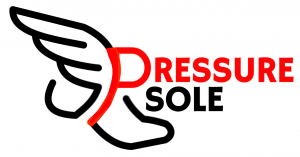 PressureSole
PressureSole
Smart Insoles for Healthy Running
PressureSole bridges the gap between professional tools and amateur needs, empowering runners to prevent injuries and improve performance through innovative, data-driven insights.
PressureSole is a novel solution designed to address the high frequency of running-related injuries, which affect 52% of recreational runners annually due to factors such as prior injuries, supination, and asymmetric loading. Designed for amateur runners, the product aims to help prevent long-term injuries by providing accessible, professional-grade feedback on running mechanics.
The primary stakeholders include amateur runners, running shoe manufacturers, and physical therapists. PressureSole offers value by achieving 80% clinical data accuracy, ensuring comfort without disrupting running form, and delivering personalized recommendations—all at an affordable price point.
Team PressureSole is composed of Brooke Caragher, Eugenia Kritsuk, Audrey Mann, Samantha Schoenberg, and Jake Wang and is advised by AMA Family Assistant Professor Ottman Tertuliano.
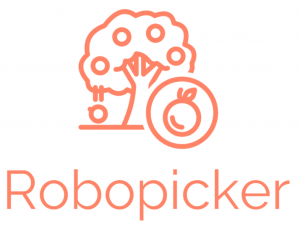 Robopicker
Robopicker
A Vision-Based Peach Picker Tool
Manual labor remains a cornerstone of the stone fruit industry, particularly in peach harvesting. However, reliance on human pickers poses challenges, including inefficiency, inconsistent ripeness assessments, and fruit damage during collection. These issues result in significant yield losses—up to 40%—reducing profits and raising prices. Stakeholders, such as farmers, have expressed the need for a solution to decrease yield loss without replacing workers.
The proposed solution is a handheld, pneumatic robotic fruit picker tool designed for peaches. The device integrates a cloud-based, offboard computer vision ripeness detection system with a lightweight peach gripper and onboard display, ensuring higher-quality, undamaged fruit is picked. This system reduces yield loss while maintaining the industry-standard picking rate of six peaches per minute. Its affordability (<$750) and ease of use (<2 hours training) make it accessible to large and small-scale operators.
Team Robopicker is composed of Rohan Maliekkal, Finn Maniscalco, and Eli Katz, advised by Assistant Professor Michael Posa.
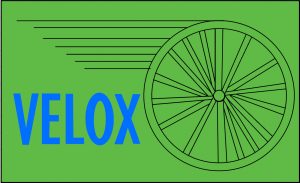 Velox
Velox
Electrify Your Ride
As the world shifts away from fossil-fuel powered vehicles, environmentally friendly electric bikes grow increasingly popular, especially in inner cities where traffic and congestion are a major concern for commuters. However, these e-bikes often cost more than four figures, are bulky, and lack the ideal range of 15 miles for urban consumers on a budget with limited storage space. Velox provides a cheap, easy-to-install alternative to electric bikes in the form of an electric bike converter kit. This kit is perfect for bike riders who want the perks of riding an electric bike without spending over $1,000.
Team Velox is composed of Tyler Chaudhary, John Fera, Ryan Kagarise, and Thomas Rebstock and is advised by Practice Associate Professor Dustyn Roberts.
